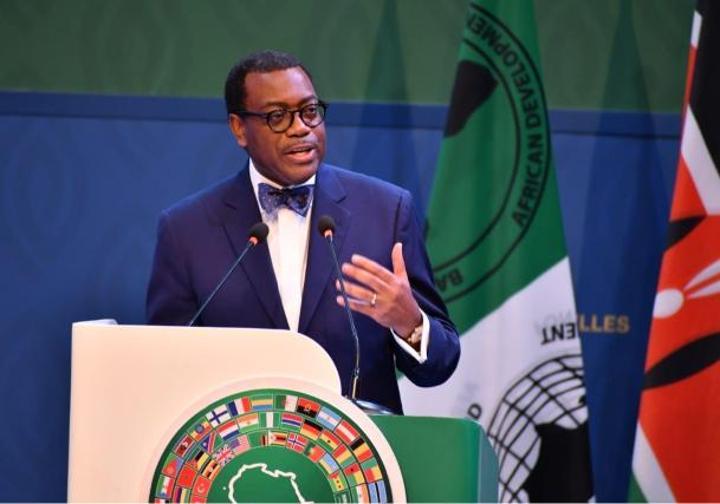Africa-Press – Eritrea. Farmers are finding it increasing difficult to adapt to climate change and there is urgent need for more resilient agricultural technologies, African Development Bank president Dr Akin Adesina has said.
“To achieve this, we must fund and support research and development centres that develop such technologies-whether for crops, livestock, fisheries or better-performing breeds,” he said.
“Research and development support is more critical today than ever because adapting to climate change requires continuous investment in R&D.”
Adesina spoke on the sidelines of the 2024 AfDB annual meeting at KICC in Nairobi.
Participants discussed potential collaborations between AfDB and Consortium of International Agricultural Research Centres (CGIAR) to advance agricultural research, technology adoption and innovation in Africa.
The meeting explored strategies for scaling up successful agricultural interventions and innovations to reach more smallholder farmers and communities.
It focused on strengthening climate resilience and adaptation strategies, engaging youth and women in agricultural transformation, and identifying opportunities for joint initiatives promoting inclusive and gender-responsive agricultural development.
Adesina emphasised the importance of top-notch research translating into adaptive, accessible and highly productive technologies.
“This will allow smallholder farmers to increase their productivity,” he said.
He said no part of the world has achieved significant productivity growth or transformed agriculture without using CGIAR planting materials (germplasm).
“We must recognise that, whether in developed or developing countries, germplasm is crucial. Therefore, if we are serious about feeding the world, we must seriously consider doubling or tripling support for CGIAR,” Adesina said.
“We do not have the luxury of acting independently. We must ensure CGIAR works closely with regional and national agricultural research centres and the private sector to deliver scalable results.”
Adesina acknowledged Technology for African Agricultural Transformation for raising food productivity in Africa.
TAAT is a programme that increases agricultural productivity in at least 45 countries in Africa, including Kenya, by deploying proven high performance agricultural technologies.
He said Africa has the technology to double or triple productivity and feed itself, but political and policy support is needed to scale up these technologies.
“Africa should never beg for food. There is no pride in that. What Africa does with its agricultural budget will shape the future of food in the world,” Adesina said.
CGIAR chairperson Lindiwe Sibanda said scaling up cannot be achieved without partners who can effectively transfer technologies from research to farmers.
CGIAR is a global research partnership dedicated to transforming food, land and water systems in a climate crisis.
Sibanda highlighted the Vision for Adapted Crops and Soils programme, which will be primarily implemented in Africa to explore opportunity crops.
“Many of these ‘grandmother crops’ hold the key to nutritional density and climate resilience. We are not afraid of the challenge of feeding 2.5 billion people by 2050 because we have the tools,” she said.
Sibanda emphasised the need to deliver these tools in a climate-smart manner and revisit gene banks to ensure previously undervalued crops now provide nutritionally rich food, helping to eradicate hunger.
Source: The Star
For More News And Analysis About Eritrea Follow Africa-Press







